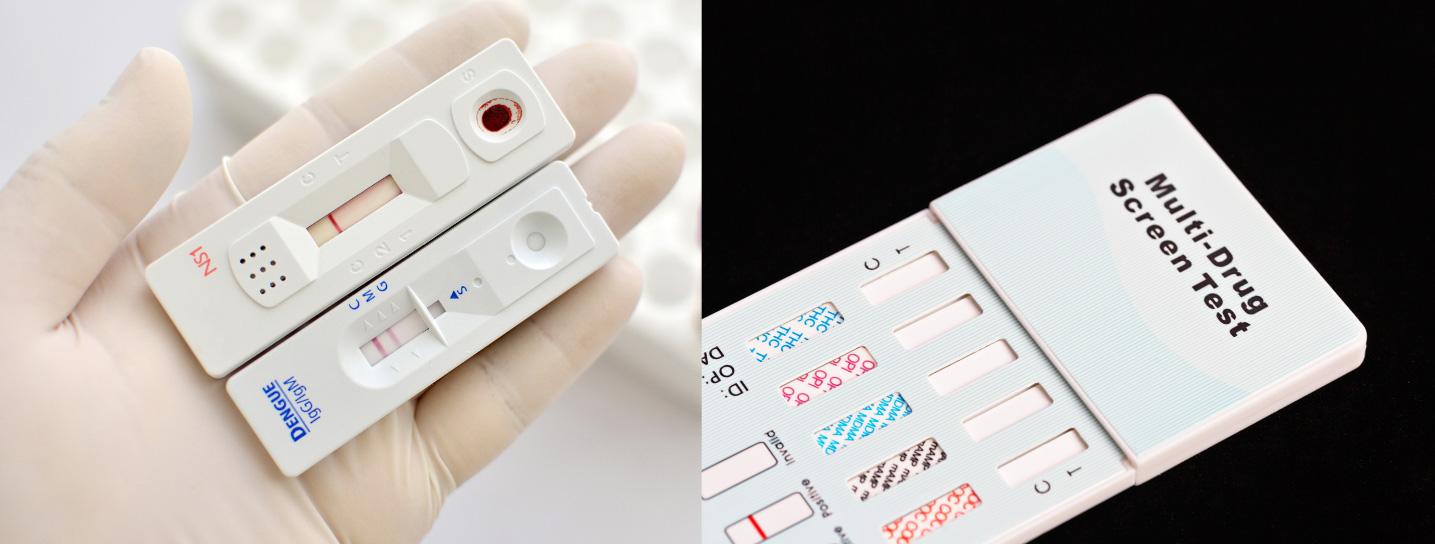We have 1 000's of qualified inspectors WORLDWIDE
When it comes to laboratory reagents and test kits, ensuring the quality and accuracy of the products is of paramount importance. One of the key measures that can guarantee the reliability of these essential supplies is pre-shipment inspection. By engaging the services of a qualified inspector, you can be confident that the products you receive meet the required standards, saving you from potential hazards and costly mistakes.
This inspection process involves a qualified inspector thoroughly examining the products before they are shipped, checking for compliance with standards and regulations, identifying any defects or damages, and preventing contamination or cross-contamination.

Ensuring Product Compliance:
Pre-shipment inspection plays a vital role in ensuring that laboratory reagents and test kits comply with the specified standards and regulations. An inspector will meticulously examine the products, checking for any deviations from the required specifications. This includes assessing the accuracy of the components, verifying the integrity of packaging, and confirming the presence of necessary documentation, such as safety data sheets and certificates of analysis. By conducting a thorough inspection, you can have peace of mind that the products meet the necessary compliance criteria, mitigating any potential legal or regulatory risks.
Inspecting laboratory reagents and test kits before they are shipped can reveal any defects or damages that might have occurred during manufacturing or transportation. Even the slightest damage or contamination can compromise the accuracy and reliability of the products, leading to erroneous results and unreliable data. A qualified inspector can detect these issues early on and communicate them to the supplier, allowing for necessary corrective actions to be taken. By addressing such problems before the products are dispatched, you can avoid unnecessary delays and disruptions in your research or diagnostic activities.
Preventing Contamination and Cross-Contamination:Laboratory reagents and test kits are often extremely sensitive to contamination, which can adversely impact the results and compromise the integrity of experiments or diagnoses. The pre-shipment inspection involves verifying the cleanliness of the packaging, ensuring that it meets the required standards to prevent contamination. Inspectors also check for proper labelling and separation of different reagents to prevent cross-contamination. By having an inspector assess these critical factors, you can minimize the risk of contamination, enhancing the reliability and accuracy of your scientific endeavours.
Protecting against Counterfeit or Substandard Products:
The unfortunate reality in today's global marketplace is the presence of counterfeit or substandard products. Unscrupulous suppliers may attempt to pass off low-quality or fake laboratory reagents and test kits, which can have serious consequences for your research or diagnostic outcomes. Pre-shipment inspection acts as a safeguard against such risks by thoroughly examining the products for authenticity, quality, and conformity to established standards. By engaging an inspector, you can be confident that you are procuring genuine and reliable supplies, protecting the integrity of your work.
An inspector conducting the pre-shipment inspection of laboratory reagents and test kits would typically employ the following methods:
Visual Inspection: The inspector visually examines the products, checking for any visible defects, damages, or inconsistencies in the packaging, labels, or product appearance.Documentation Review: The inspector verifies the presence and accuracy of the necessary documentation, such as safety data sheets, certificates of analysis, product specifications, and compliance certificates.
Sampling and Testing: The inspector may take representative samples from the batch and perform tests to ensure the product's quality, accuracy, and performance. This may include analyzing the composition, purity, pH levels, or any specific parameters relevant to the reagents or test kits.
Packaging Assessment: The inspector assesses the packaging materials for adequacy, durability, and protection against contamination, ensuring that they meet the required standards.
Labeling Inspection: The inspector checks the labels on the products, ensuring that they contain accurate and clear information about the product, including batch numbers, expiration dates, storage instructions, and any necessary warning labels.
Compliance Verification: The inspector verifies that the laboratory reagents and test kits comply with relevant industry standards, regulations, and specific requirements set by regulatory bodies or authorities.
Cross-Contamination Evaluation: The inspector assesses the packaging and separation of different reagents or components to prevent cross-contamination during transportation and storage.
Authenticity Checks: The inspector may perform authenticity checks to ensure that the products are not counterfeit or substandard. This may involve comparing the packaging, labels, and other product characteristics with genuine products or industry benchmarks.
Supplier Audit: In some cases, the inspector may conduct an audit of the supplier's manufacturing processes, quality control systems, and documentation practices to evaluate their overall reliability and adherence to quality standards.
By employing these comprehensive inspection methods, an inspector can thoroughly evaluate the laboratory reagents and test kits, providing you with the confidence that the products meet the required quality, compliance, and performance standards.
Laboratory reagents and test kits are essential tools in scientific research, medical diagnostics, and various fields of chemistry, biology, and medicine, enabling accurate experiments and tests. Reagents encompass analytical substances for detecting specific components, buffer solutions for pH control, stains for visualization, solvents for dissolution, and chemical standards for calibration. Test kits, pre-packaged sets of reagents, find use in diagnostics, environmental monitoring, and research, detecting biomarkers, pathogens, contaminants, and performing DNA/RNA analyses. Proper handling and safety precautions are vital due to potential hazards, ensuring accurate outcomes and maintaining adherence to protocols.
Medical Diagnostic Test Kits | Environmental Test Kits | Food and Beverage Test Kits | Molecular Biology Test Kits | Drug Testing Kits













